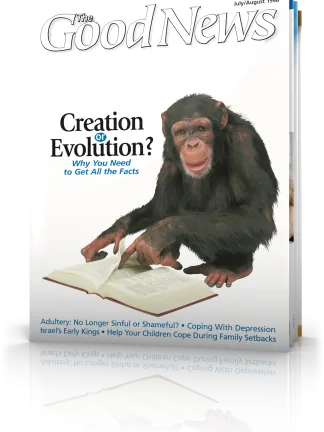World News and Trends: The millennium bug and the year 2,000
At the close of the 20th century, people are beset by so many threats that it's hard to keep up with them. Not least of the problems is all the fuss emanating from the calendar date itself-the beginning of the year 2,000.
The millennial clock is ticking away, and some observers fear that the transition from the familiar double-digit 19 to double-digit 20 is going to be a technological nightmare of catastrophic proportions. The problem? Hundreds of thousands of computer programs have been written using only the last two of the four digits of the year. The year 1998, for example, is represented by 98. When 2000 arrives, many computer programs that have not been corrected will assume that the year 1900 has arrived.
This problem is generally known as the "millennium bug." No one is quite sure exactly what will happen in a world increasingly dependent on computers. But many observers agree that it threatens to temporarily ground air transport, cause severe stock-market drops and precipitate numerous economic and business calamities. Apparently even our defense systems could be menaced.
Governments have not ignored the threat. Prime Minister Tony Blair of Britain has taken it seriously and made available 20,000 computer professionals to work on the problem, now only about a year and a half away.
However, we have much more serious endangerments to consider than just calendrical technicalities. As journalist and author Marina Benjamin reflected: "From its inception, the twentieth century has been less a century to celebrate than one to survive. And as it draws to a close with threats to our continued existence multiplying both in scale and number-so that to add to the evils of overpopulation, possible nuclear warfare and famine, we now face a catalogue of environmental hazards and a legion of new microbial foes ..." (Living at the End of the World, pp. 8-9).
"Will we survive?" is still the biggest question dogging the human species. Jesus Christ Himself looked down through the centuries and anticipated the dilemmas of the world at the end of this age. He said that end-time events would so seriously imperil humanity that the survival of the species would be in doubt.
He spoke of "a time of great distress, such as there had never been before since the beginning of the world, and will never be again" (Matthew 24:21, Revised English Bible). Yet Christ guaranteed our survival as a species in the same promise He gave to the Church of God (Matthew 16:18). "If that time of troubles were not cut short, no living thing could survive; but for the sake of God's chosen it will be cut short" (verse 22, REB).
Christ had mentioned earlier that "all these things are the first birth-pangs of the new age" (verse 8, REB)-anticipating the coming utopian time: His 1,000-year millennial reign, which would follow in the wake of our present problems. What we have to endure is a difficult transition. Yet our eventual deliverance is sure. For further understanding, please request the free booklet The Gospel of the Kingdom. (Sources: Newsweek, Yorkshire Post.)




